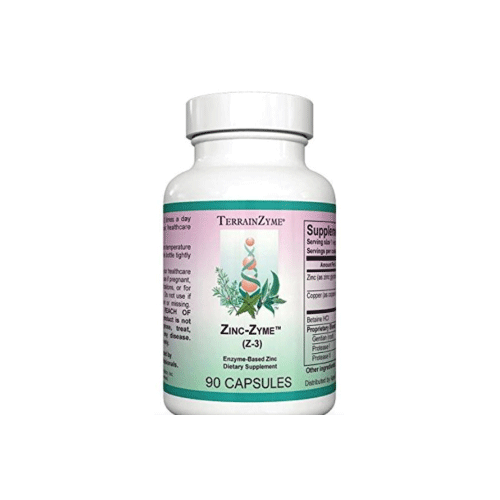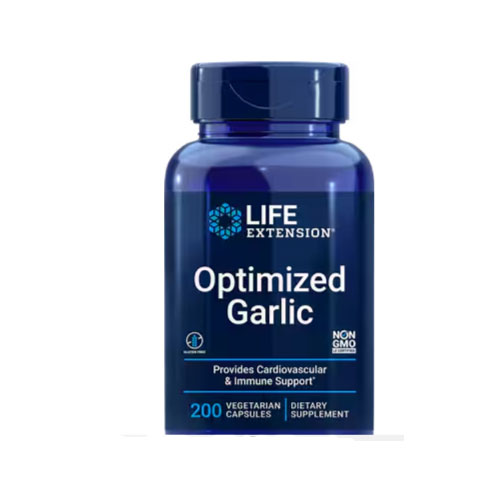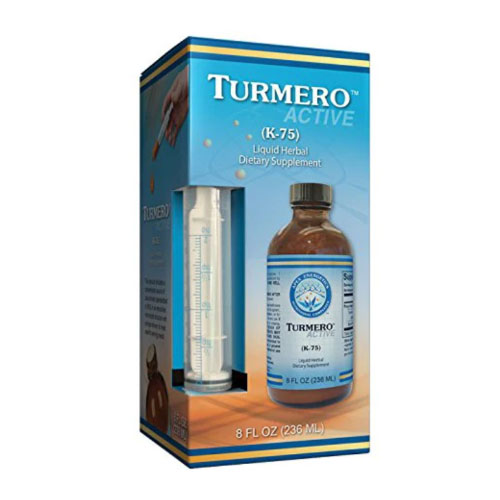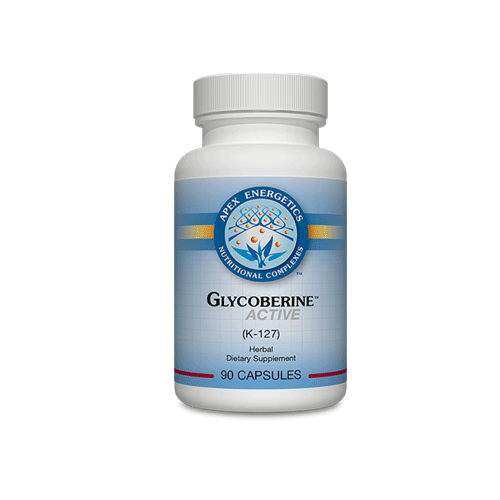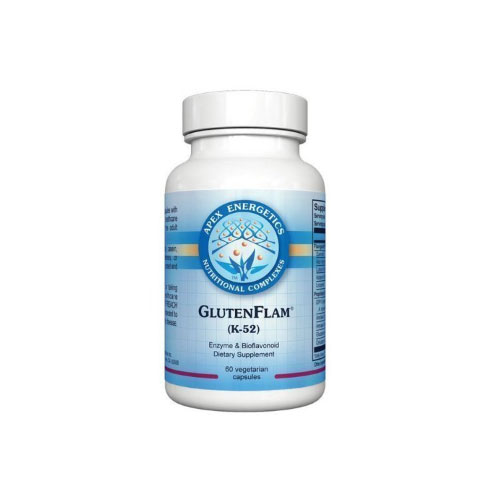All Good Things: Step 10 to Preserve
Brain Health-Lifelong Learning And
A Summary of All Ten Lessons
Introduction
And now, dear readers, ride along with us as we explore the final step in our brain preservation program: Lifelong Learning. Though shorter than previous lessons, be astounded, as we were, discovering the profound benefits lifelong learning brings to your physical, social, and spiritual quality of life.

Recall the ten steps and stay tuned for a summary of the entire program:
Dr. C’s 10-Step Program To Boost Brain Health:
- Keep Your Blood Sugar Balanced
- Eat Healthy Fats
- Get Adequate and Restful Sleep
- Enough (but not too much) Vitamin D3 is Essential for Brain Health
- Get Your Gut In Order
- Maintain Adequate Methylation
- Balance Your Hormones
- Apply the 6 Fixes for A Healthy Heart
- Exercise
- Lifetime Learning
Let’s dive into it.
The 10:40 of Lifelong Learning to Preserve Brain Function and Reduce Dementia
“I want to say one word to you, Benjamin. Just one word. Plastics.”
Benjamin, portrayed by Dustin Hoffman, is a recent college graduate who is talented but aimless and turns to Mrs. Robinson, the wife of his father’s business partner. This oft-repeated famous line from the 1967 movie “The Graduate” encapsulated the hope of the future for a lost generation. (1)
Fast-forward to today. Benjamin is 69-70 years old, retired, with 2.4 moderate to major medical issues, enough money to live comfortably, too much time on his hands, and still itching to make a difference in the world. (Mrs. Robinson would be approximately 110 years old, so I assume Benjamin is no longer attracted to her. I could be mistaken)
None other than our own Social Security Administration identifies early retirees (especially those who retire precisely at age 62) with higher all-cause mortality risks (20-38% higher) than those who retire at age 65. (2)
Pre-existing health conditions and disability account for some early retirement and premature death statistics. But those in relatively good health, and even those who are not, relate the loss of social networks, reduced physical activity (remember how lazy we all felt during the COVID shutdowns), changes in lifestyle habits with potentially increasing unhealthy behaviors, such as dietary indiscretion, increased alcohol consumption, or smoking, and the psychological stress, anxiety, or depression, of “slowing down” create a perfect storm, for “I’m not needed here anymore.”
Like many of us, Benjamin feels time has passed him by. (Some) of the things he always wanted to do, but they had to wait because family, job, or otherworldly obligations would not happen. (For instance, I always wanted to play third base for the Philadelphia Phillies. Alas, I throw left-handed, can’t hit a curve ball, and am now in the senior category, which is the subject of this article.)
Dr. James Naccarato, Utah psychologist extraordinaire, defines a “White Hot Imperative (WHI)” as a directive or motivation characterized by extreme urgency and intensity. The WHI signifies a psychological or emotional command that compellingly drives behavior. The individual has no choice but to carry out the directive to make their life meaningful. (3)
So I won’t play third base for the Phillies (or quarterback the Eagles), but I can coach youth sports or attend a fantasy camp. In other words, when one dream fades, another can take its place. The key is to never “give up.” Do not ever fully retire.
Semi-retirement is the perfect vehicle for staying in the game and pursuing your white-hot imperative. Semi-retirement is when the bucket list comes out, and your “WHI” shines ever more brightly.
No better way exists to stay current with professional skills, maintain cognitive health, and reduce the incidence of dementia than to pursue new ‘white-hot’ opportunities. Rather than retreating into a television-infused shell, you must continue or increase your intellectual engagement to preserve brain function and enhance your overall well-being. Lifelong learning in just about any subject ever imagined is out there for the most part; it is free and available online. You don’t even have to slip out of your jammies.
The Science Behind Lifelong Learning and Brain Health
Individuals who engage in intellectually stimulating activities throughout their lifetime significantly reduce their risk of cognitive decline and dementia. (4) Like an arm or leg muscle, the brain benefits from regular exercise. Lifelong learning keeps neurons active, fosters new neural connections, and enhances cognitive reserves. (5)
Individuals who engaged in mentally stimulating activities are 32% less likely to suffer cognitive decline compared to those who did not. (6) Every year of education reduces the risk of dementia by 11%. (7)
The Evidence
The ACTIVE Study (Advanced Cognitive Training for Independent and Vital Elderly) demonstrates that cognitive training significantly improves cognitive abilities, maintains functional independence in older adults, and delays the onset of dementia by up to 87% for ten years! (8)
Mental stimulation increases cognition by improving attention span, memory, information processing speed, and decision-making skills. Effective, research-backed forms of mental stimulation include life-long education, learning a second language, crossword puzzles, and social interaction. (9)
So, let’s get going.
Evidence-Based Lifelong Learning Programs
1. Experience Corps:
The Experience Corps places mature adults in public elementary schools as tutors and mentors.
The program began in 1988 and is a time-tested method for boosting student academic performance. Experience Corps aids schools and youth organizations in outreach to troubled and at-risk individuals and strengthens ties between educational institutions and surrounding neighborhoods. (10) Students in the program gain greater reading skills than their peers. (11)
For the adult volunteers, Experience Corps improves their own mental and physical health, memory, and executive functioning while reducing symptoms of loneliness, isolation, despair, and depression. (12)
To volunteer to help kids read better, contact Experience Corp here: https://www.aarp.org/experience-corps/
2. Lifelong Learning Institutes (LLIs):
LLIs, such as those affiliated with the Osher Lifelong Learning Institute, offer non-credit courses for older adults. Lifelong learning programs cover many subjects, from arts and humanities to science and technology. LLI participants report higher levels of cognitive functioning and lower incidences of dementia. Engaging in educational activities through LLIs improves memory executive function and reduces dementia risk. (13)
To learn more about LLIs, contact the Osher Lifelong Learning Center at UCLA here: https://www.uclaextension.edu/osher-olli.
3. The SilverSneakers Program:
Primarily known for its focus on physical fitness, SilverSneakers offers a variety of online and in-person educational classes, ranging from nutrition to mental wellness. By combining physical and mental exercises, SilverSneakers takes a holistic approach to lifelong learning and cognitive health. (14)
SilverSneakers offers low-impact classes such as walking, swimming, and strength training. Its goal is to help participants maintain their independence and improve their quality of life by improving overall fitness, mobility, and strength. Silver Sneakers classes are typically offered through community centers, gyms, and healthcare facilities and are led by certified fitness instructors.
To find one of the over 15,000 Silversneaker locations, click here: https://tools.silversneakers.com/
4. The Road Scholar Program:
Road Scholar allows participants to engage in educational travel tours designed specifically for older adults. Mature adults learn through travel experiences that combine lectures, field trips, and social interaction. Experiential learning provided by Road Scholar significantly enhances cognitive reserve and delays the onset of dementia. (15)
Begin your travel adventure at https://www.roadscholar.org/collections/most-popular/

Five Popular Free Lifelong Learning Programs for Seniors in the United States
- Coursera for Seniors offers free courses from top universities and companies. Seniors audit courses for free, gaining access to video lectures and community discussions. (16) Check them out here to access 7000 + free world-class courses, hands-on projects, and job-ready certificate programs: https://www.coursera.org/courseraplus/?utm_medium=sem&utm_source=gg&utm_campaign=B 2C_NAMER coursera_FTCOF_courseraplus_country-US-country-CA&campaignid=97777515 87&adgroupid=100171642259&device=c&keyword=coursera%20%2B&matchtype=b&network= g&devicemodel=&adposition=&creativeid=442114125114&hide_mobile_promo&gad_source=1& gclid=CjwKCAjwvIWzBhAlEiwAHHWgvS9qhteod899MdZBBHvPrjSf1LOPZrEO0ueBPHh7gbLc2 v859f-ZHRoCSx4QAvD_BwE
- Senior Planet, a program of Older Adults Technology Services (OATS), offers free online classes, programs, and activities to help seniors learn new skills, save money, get in shape, and make new friends. (17)
Senior Planet promotes physical, mental, and emotional health through music, dance, and socialization. The program is designed to help seniors stay connected with their communities and maintain an active lifestyle. Check out Senior Planet here:
- Khan Academy: (18)
The Khan Academy provides free online courses for pre-K through post-doctoral students on subjects ranging from basic math and reading skills to sciences, art, humanities, economics, medicine, and the law.
Founded in 2009, the Kahn Academy’s goal is to make education accessible to anyone with an internet connection. The organization is recognized for its innovative teaching methods and impact on education. Not content with providing courses, you can participate in practice exercises, quizzes, and other resources to help improve your skills and understanding.
Want to go to medical or law school? Kahn Academy has practice medical college application (MCAT) and law school application tests (LCAT) ready to go! Don’t sneer. My first-year medical school classmate Al F., age 57!
Start learning what you want to learn by contacting the Kahn Academy at https://www.khanacademy.org/
(Did I mention it is a nonprofit organization with FREE courses?)
4. OpenLearn by The Open University: (19)
OpenLearn is an alternative venue offering free courses, including university-level and professional development training. Topics covered range from science to technology to engineering and mathematics.
OpenLearners achieve knowledge, skills, and certifications from top institutions worldwide. The OpenLearn platform is helpful for individuals wanting to upskill, reskill, or pursue higher education. If your resources, either in time or in your pocketbook, are limited, especially in terms of attending traditional classes, OpenLearn is your ‘secret’ go-to. With a flexible and accessible learning model, OpenLearn allows you to proceed at your own pace and schedule.
Contact OpenLearn at https://www.open.edu/openlearn/ (Did I mention the OpenLearn courses are also FREE?)
5. edX: (20)
edX, like Coursera, offers a variety of free and paid courses from top universities and institutions. Not all edX courses are free, but many are available at no cost, making it an excellent option for learners on a budget. EDX’s course catalog makes it easy to find “free” or “audit only,” and seniors can “sit in” for most courses at no charge with subjects ranging from law, history, science, engineering, business, social sciences, computer science, public health, and artificial intelligence (AI).
To find eDX, click: https://www.edx.org/school/edx

Most colleges and universities, including community colleges, offer seniors free access to their classes to audit without the burden of test taking, written paper production, or grades. The trade-off is that there is no credit toward any type of degree for auditing these classes.
Top Free College Auditing Programs for Seniors in the United States
1. Tufts University’s Osher Lifelong Learning Institute: (21)
Tufts University is a membership-based free auditing platform for seniors through its Osher Lifelong Learning Institute. This program allows older adults to participate in courses ranging from arts and sciences to humanities to social sciences without the pressure of exams or grades.
To contact Tufts University’s Osher Lifelong Learning Institute, click: https://universitycollege.tufts.edu/osher-lifelong-learning-institute/about
2. University of Washington’s Access Program: (22)
Like the Osher LLI at Tuft’s University, The University of Washington ACCESS Program allows seniors aged 60 and older to audit courses for free through its Access Program. ACCESS students can choose a wide range of undergraduate courses for audit, meaning no tests, no required papers, and no grades. (On the flip side, no college credit either.)
The University of Washington’s Access Program is at https://registrar.washington.edu/registration/access/
3. California State University’s Over 60 Program: (23)
California State University offers its Over 60 Program for seniors (aged 60 and older, who could have guessed?) not letting the grass grow under their feet. Participants audit classes at any of its 23 campuses or online, choosing from hundreds of college-level course offerings. Students benefit from the university’s extensive resources and academic expertise, again sans grades, papers, and college credit.
Cal State’s contact is https://catalog.csusb.edu/programs-az/
Conclusion
Lifelong learning fosters a sense of purpose, improves mental health, and enhances social connections. Engaging in educational activities combats two key risk factors for seniors’ decline: Isolation and depression. Lifelong learning leads to new hobbies, interests, social networks, and an improved quality of life. (24)
Lifelong learning is a powerful tool for preserving brain function and reducing the risk of dementia. (25) By staying intellectually engaged, individuals enjoy a more fulfilling and cognitively vibrant life well into their later years. Programs like the Experience Corps, Lifelong Learning Institutes, SilverSneakers, and Road Scholar offer practical and effective ways to incorporate lifelong learning into one’s routine.
Free programs like Coursera, Senior Planet, Khan Academy, OpenLearn, and edX, and top college auditing programs at Tufts University, the University of Washington, and California State University, make lifelong learning accessible to everyone.
The truly alive senior embraces life and never fully ‘retires.’ Instead, a “semi-retirement” while engaging in lifelong learning experiences leads to improved cognitive health and an enhanced quality of life.
It’s a Wrap:
Dr. C’s 10-Step Program To Boost Brain Health: The Summary
Neurodegenerative diseases such as Alzheimer’s, Parkinson’s, dementia, and Huntington’s Chorea are among the most feared ailments of our time. At Longevinex, we actively revolutionize healthy aging and cardiovascular wellness through scientifically formulated supplements. Since our inception in 2004, we have been committed to providing high-quality, effective products that promote longevity and overall well-being and focus on educating our community with actionable steps for better health.
Over the past six months, under the expert guidance of our medical advisor, Dr. William Clearfield, we outlined ten actionable steps designed to slow the progression of, prevent, or even eliminate these debilitating conditions. Today, we proudly present our findings, offering practical advice in easy, bite-sized chunks to support your brain health now and into the future.
The 10 Steps to a Healthy Brain
To maintain a healthy brain as you age, here are some steps you can consider incorporating into your lifestyle:
- Keep Your Blood Sugar Balanced:(26)
- Opt for whole foods and complex carbohydrates over refined sugars to support brain health.
- Eat Healthy Fats: (27)
- Include sources of healthy fats like omega-3 fatty acids (found in fish, nuts, and seeds) in your diet.
- Get Adequate and Restful Sleep: (28)
- Prioritize quality sleep to allow your brain to rest and rejuvenate.
- Ensure Sufficient Vitamin D3 Intake: (29)
- Vitamin D plays a role in brain function, so get enough through sunlight exposure or supplements.
- Maintain a Healthy Gut: (30)
- A healthy gut contributes to overall well-being, including brain Eat fiber-rich foods and consider probiotics.
- Support Methylation: (31)
- Methylation processes in the body are crucial for brain Consume foods rich in B vitamins and folate.
- Balance Hormones: (32)
- Work with your healthcare provider to ensure hormonal balance, which can impact brain function.
- Prioritize Heart Health: (33)
- What’s good for the heart is often good for the Exercise and a balanced diet can help maintain a healthy heart.
- Stay Active: (34)
- Regular physical activity can benefit brain health by promoting blood flow and
- Engage in Lifelong Learning:
- Keep your brain active by learning new skills, reading, solving puzzles, or pursuing hobbies that challenge your mind.
Remember, a holistic approach to health, including physical exercise, mental stimulation, social connections, and a nutritious diet, helps maintain your brain function as you age. Consult a knowledgeable healthcare professional for personalized advice and guidance tailored to your needs and health status.
References
- https://en.wikiquote.org/wiki/The_Graduate
- https://www.ssa.gov/policy/docs/workingpapers/wp97.html
- https://www.linkedin.com/posts/jim-naccarato-dc-phd_white-hot-imperative-activity-7158 529484659322880-Vz6Y/
- Schultz SA, Larson J, Oh J, Koscik R, Dowling MN, Gallagher CL, Carlsson CM, Rowley HA, Bendlin BB, Asthana S, Hermann BP, Johnson SC, Sager M, LaRue A, Okonkwo OC. Participation in cognitively-stimulating activities is associated with brain structure and cognitive function in preclinical Alzheimer’s disease. Brain Imaging Behav. 2015 Dec;9(4):729-36. doi: 10.1007/s11682-014-9329-5. PMID: 25358750; PMCID: PMC4417099.
- https://www.waldenu.edu/programs/resource/the-many-benefits-of-lifelong-learning
- American Academy of Neurology (AAN). “Does being a bookworm boost your brainpower in old age?.” ScienceDaily. ScienceDaily, 4 July 2013. <www.sciencedaily.com/releases/2013/07/130704094454.htm>
- Sharp ES, Gatz M. Relationship between education and dementia: an updated systematic review. Alzheimer Dis Assoc Disord. 2011 Oct-Dec;25(4):289-304. doi: 10.1097/W0b013e318211c83c. PMID: 21750453; PMCID: PMC3193875.
- https://brainhq.com/world-class-science/information-researchers/active-study/#:~:te xt=According%20to%20the%20study%2C%2087,used%20memory%20training%20sho wed%20improvements.
- Tennstedt SL, Unverzagt The ACTIVE study: study overview and major findings. J Aging Health. 2013 Dec;25(8 Suppl):3S-20S. doi: 10.1177/0898264313518133. PMID: 24385638; PMCID: PMC3934012.
- https://www.aarp.org/experience-corps/our-impact/experience-corps-research-studies/
- Lee, Yung Soo; Morrow-Howell, Nancy; Jonson-Reid, Melissa; McCrary, Stacey (2012). “The Effect of the Experience Corps Program on Student Reading Outcomes”. Education and Urban Society. 44: 97–118. doi:1177/0013124510381262. S2CID 145259284
- Hong, S. I.; Morrow-Howell, N. (2010). “Health outcomes of Experience Corps: A high-commitment volunteer program”. Social Science & Medicine. 71 (2): 414–420. doi:1016/j.socscimed.2010.04.009. PMID 20510493
- https://www.uclaextension.edu/osher-olli
- https://tools.silversneakers.com/
- https://www.roadscholar.org/collections/most-popular/
- https://www.coursera.org/courseraplus/?utm_medium=sem&utm_source=gg&utm_camp aign=B2C_NAMER coursera_FTCOF_courseraplus_country-US-country-CA&campaig nid=9777751587&adgroupid=100171642259&device=c&keyword=coursera%20%2B&m atchtype=b&network=g&devicemodel=&adposition=&creativeid=442114125114&hide_m obile_promo&gad_source=1&gclid=CjwKCAjwvIWzBhAlEiwAHHWgvS9qhteod899MdZB BHvPrjSf1LOPZrEO0ueBPHh7gbLc2v859f-ZHRoCSx4QAvD_BwE
- https://seniorplanet.org/
- https://www.khanacademy.org/
- https://www.open.edu/openlearn/
- https://www.edx.org/school/edx
- https://universitycollege.tufts.edu/osher-lifelong-learning-institute/about
- https://registrar.washington.edu/registration/access/
- https://catalog.csusb.edu/programs-az/
- National Academies of Sciences, Engineering, and Medicine; Division of Behavioral and Social Sciences and Education; Health and Medicine Division; Board on Behavioral, Cognitive, and Sensory Sciences; Board on Health Sciences Policy; Committee on the Health and Medical Dimensions of Social Isolation and Loneliness in Older Social Isolation and Loneliness in Older Adults: Opportunities for the Health Care System. Washington (DC): National Academies Press (US); 2020 Feb 27. 9, Interventions. Available from: https://www.ncbi.nlm.nih.gov/books/NBK557966/
- Flexman Lifelong Learning:: A Key Weapon in Delaware’s Fight Against Cognitive Decline. Dela J Public Health. 2021 Sep 27;7(4):124-127. doi: 10.32481/djph.2021.09.015. PMID: 34604775; PMCID: PMC8482992.
- https://longevinex.com/10-steps-for-healthy-brain-function-how-to-delay-and-possibly-rev erse-alzheimers-disease-part-1/
- https://longevinex.com/10-steps-for-healthy-brain-function-part-2-how-to-delay-and-possi bly-reverse-alzheimers-disease/
- https://longevinex.com/10-steps-for-healthy-brain-function-part-2-how-to-delay-and-possi bly-reverse-alzheimers-disease/
- https://longevinex.com/the-role-of-vitamin-d-in-brain-health/
- https://longevinex.com/10-steps-program-to-boost-brain-health-part-5-nurturing-the-gut-b rain-axis/
- https://longevinex.com/10-step-program-to-boost-brain-health-step-6-understanding-met hylation-and-its-importance/
- https://longevinex.com/10-step-program-to-boost-brain-health-step-7-hormone-optimizati on/
- https://longevinex.com/10-step-program-to-boost-brain-health-step-8-six-key-strategies-f or-heart-brain-health/
- https://longevinex.com/10-step-program-to-boost-brain-health-step-9-exercise-the-brain/

